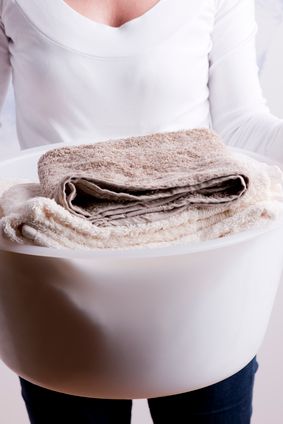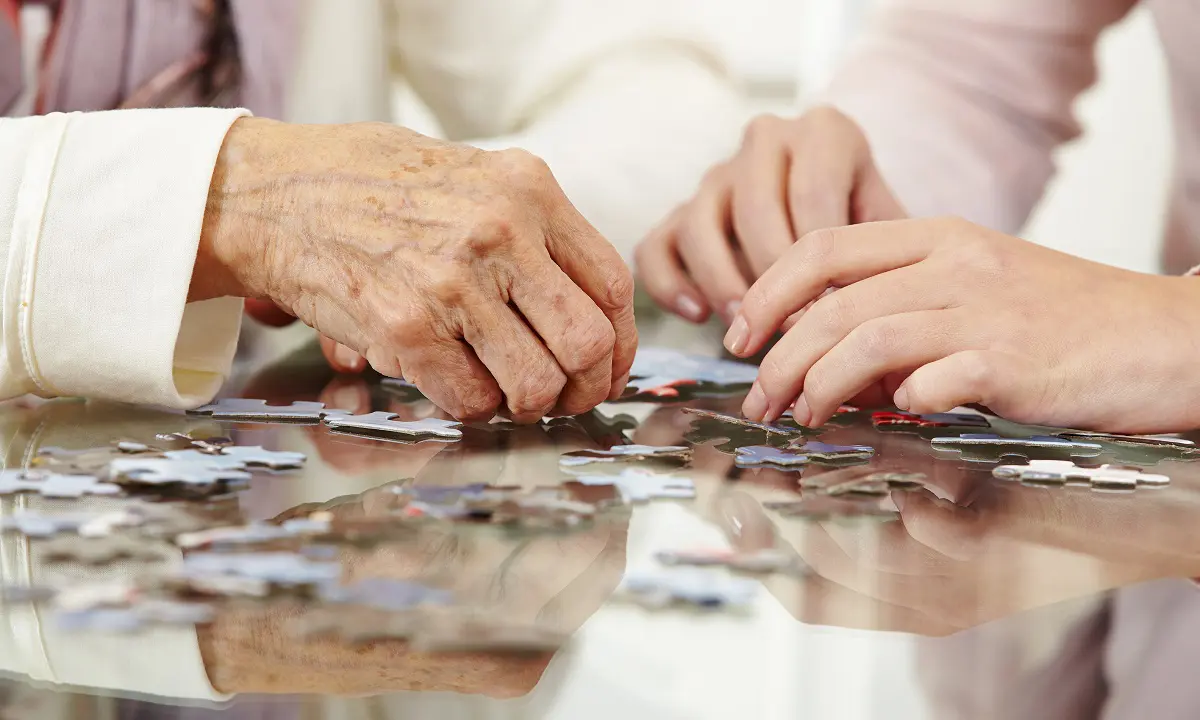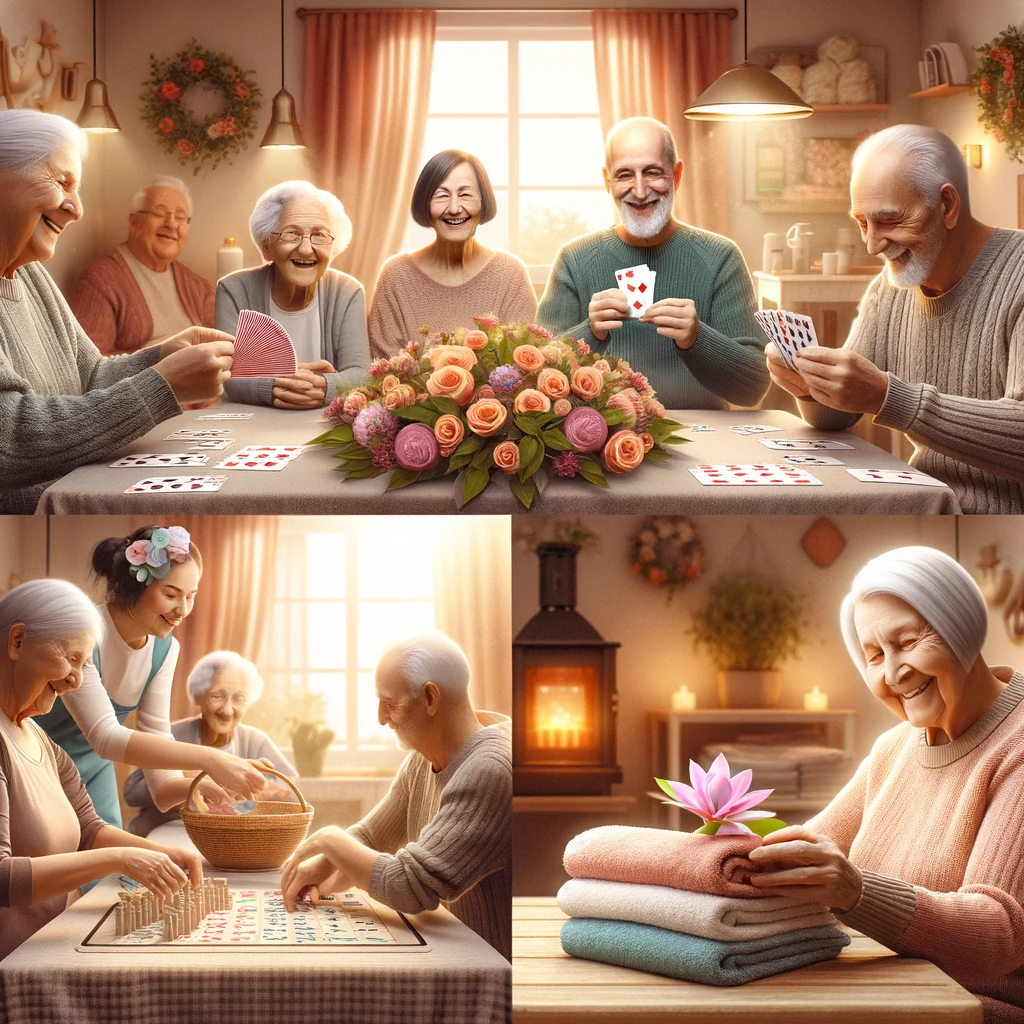Dementia Activity: Laundry Can be Fun
Doing the laundry can be a fun activity for those living with dementia when you use these simple tips.

Turning Laundry into an Enjoyable and Fun Activity with Dementia Care Patients
Doing the laundry can be a fun activity for those living with dementia when you use these simple tips. Laundry can be one of the many dementia activities that stimulate the senses and evoke memories.
Laundry as an Activity with Dementia
Engaging individuals with dementia in activities can be surprisingly rewarding, and one such activity is doing the laundry. Although most people don’t particularly relish this chore, those with dementia might find it a pleasurable diversion. Preserving their independence in activities of daily living (ADLs) is essential, and the following tips and guidelines can help you achieve this goal.
Technology can also play a significant role in keeping dementia patients engaged. Innovative solutions provide stimulating and mentally enriching experiences, ensuring they remain dementia engaged at home.
1. Keep it Simple: Maintain the organization and routine in the laundry area. Avoid rearranging items in the utility room, as those with dementia rely on consistency and familiarity.
2. Minimize Hazardous Substances: Many household cleaning products can pose safety risks for dementia patients. Safeguard their well-being by eliminating unnecessary items like bleach, insecticides, and drain cleaners from the laundry and other areas accessible to them.
3. Label Products: For items they need access to, use clear labels to help them identify and use products safely. Never transfer chemicals to generic containers; they should remain in their original packaging.
4. Dispose of Outdated Chemicals: Regularly check and discard products that have passed their expiration dates, including medications that are sometimes kept in laundry areas. Avoid overstocking on chemical products.
5. Emergency Numbers: Keep important emergency contact numbers, such as poison control, physician’s office, fire department, and police, near the phone for quick access.
6. Maintain Dryer Lint Catcher: Ensure the lint catcher in the clothes dryer is cleaned after every cycle. This is crucial for fire safety, as lint buildup is a common cause of dryer fires. Provide assistance if needed.
7. Install Smoke and Heat Detectors: Place operational smoke and heat detectors in the laundry area. Regularly test and change batteries to ensure they are in working order.
8. Upgrade Appliances: Consider modern appliances with safety features like strain traps for sinks, lockable cabinets, and appliance locks. Washer/dryer combination units can also reduce confusion and save space.
9. Encourage Independence: While dementia may eventually necessitate assistance with laundry, encourage your loved one to participate to the extent they can. Even small contributions can boost their self-esteem and sense of belonging.
10. Make it an Enjoyable Activity: Transform laundry into an enjoyable and engaging experience. Invite your family member to assist with tasks like hanging clothes outside, folding, or hanging them up. Focus on their participation rather than perfection.
11. Show Patience and Empathy: Guide them through the process and offer help as needed. Understand that people with dementia respond better to emotions than logic, so make the activity a fun and positive experience.
Engaging individuals with dementia in activities can be surprisingly rewarding, and one such activity is doing the laundry. Although most people don’t particularly relish this chore, those with dementia might find it a pleasurable diversion. Preserving their independence in activities of daily living (ADLs) is essential, and the following tips and guidelines can help you achieve this goal.
Older adults benefit from familiar tasks like folding laundry, which can be soothing and evoke pleasant memories.
By following these tips, you can turn an everyday chore like laundry into a meaningful and enjoyable activity for your loved one with dementia. These activities not only keep them engaged but also minimize negative behaviors, fostering a sense of accomplishment and togetherness.
Benefits of Laundry Activities for Dementia Patients
Laundry activities can have a profound impact on dementia patients, providing a sense of purpose and engagement. These activities can help reduce anxiety and agitation, common symptoms of dementia, by offering a calming and familiar experience. The repetitive nature of folding laundry or sorting clothes can be particularly soothing, helping to ease restlessness and promote relaxation.
Moreover, laundry activities can stimulate memories and emotions. The smell of fresh laundry and the feel of soft fabrics can evoke fond memories, transporting dementia patients back to pleasant moments from their past. This sensory stimulation can improve their mood and overall well-being, making them feel more connected to their surroundings and loved ones.
Incorporating laundry activities into the daily routine of dementia patients can lead to significant improvements in their emotional state. By engaging in these simple yet meaningful tasks, they can experience a greater sense of accomplishment and satisfaction, enhancing their quality of life.
Creating a Laundry Life Station
A Laundry Life Station is a specially designed area that mimics a laundry room, complete with a solid wood laminate washer and dryer, and a variety of laundry-related accessories. This life station is created specifically for dementia patients, providing a safe and engaging environment for them to participate in laundry activities.
The Laundry Life Station is designed to stimulate memories and emotions, offering a familiar and comforting space. By incorporating family photos and familiar objects, the station can evoke a sense of nostalgia and connection. The solid wood laminate washer and dryer add a touch of authenticity, making the experience more immersive and enjoyable.
This life station not only provides a sense of purpose and engagement but also helps dementia patients feel more at ease. The familiar setting can reduce anxiety and agitation, creating a calming environment where they can participate in meaningful activities. By integrating a Laundry Life Station into their daily routine, caregivers can offer dementia patients a valuable opportunity to stay active and connected.
Sensory Experiences in Laundry Activities
Laundry activities provide a rich sensory experience for dementia patients, engaging their sense of touch, smell, and sight. The feel of soft fabrics, the smell of fresh laundry, and the sound of the washer and dryer can all contribute to a calming and familiar experience.
The tactile sensation of handling different fabrics can be particularly soothing, offering a gentle and repetitive activity that helps dementia patients feel more grounded. The smell of freshly laundered clothes can evoke positive memories and emotions, creating a sense of comfort and well-being. Additionally, the visual cues of the Laundry Life Station, such as the washer and dryer, can help stimulate memories and emotions, making the activity more engaging and meaningful.
By incorporating sensory experiences into laundry activities, caregivers can help dementia patients feel more connected and engaged. These sensory elements can enhance the overall experience, making it more enjoyable and beneficial for their emotional and psychological well-being.
Tips for Caregivers: Planning and Adapting Laundry Activities
When planning laundry activities for dementia patients, it’s essential to consider their individual needs and abilities. Start with simple tasks, such as folding towels or sorting socks, and gradually increase the complexity as the patient becomes more engaged. This approach allows them to build confidence and feel a sense of accomplishment.
Visual aids and clear instructions can be incredibly helpful in guiding dementia patients through the tasks. Use pictures or step-by-step guides to make the process easier to understand. Offering positive feedback and praise for their efforts can boost their self-esteem and encourage continued participation.
As dementia progresses, caregivers may need to adapt laundry activities to accommodate changing needs and abilities. Be flexible and responsive, adjusting the tasks to match the patient’s current capabilities. For example, if folding becomes too challenging, focus on simpler activities like sorting clothes by color or texture.
By being attentive and adaptable, caregivers can help dementia patients stay engaged and active, providing them with a sense of purpose and enjoyment.
Encouraging Social Interaction and Conversation
Laundry activities can provide a unique opportunity for social interaction and conversation, helping to reduce feelings of loneliness and isolation. Caregivers can encourage social interaction by working alongside dementia patients, engaging in conversation and sharing stories.
Use the Laundry Life Station as a conversation starter, asking patients about their favorite laundry detergent or their childhood memories of doing laundry. These discussions can evoke pleasant memories and create a sense of connection. Sharing stories and reminiscing about the past can be a powerful way to engage dementia patients, making them feel valued and understood.
By incorporating social interaction and conversation into laundry activities, caregivers can help dementia patients feel more connected and engaged. This not only enhances the overall experience but also fosters a sense of community and belonging, improving their emotional well-being.
You might also like this article:










